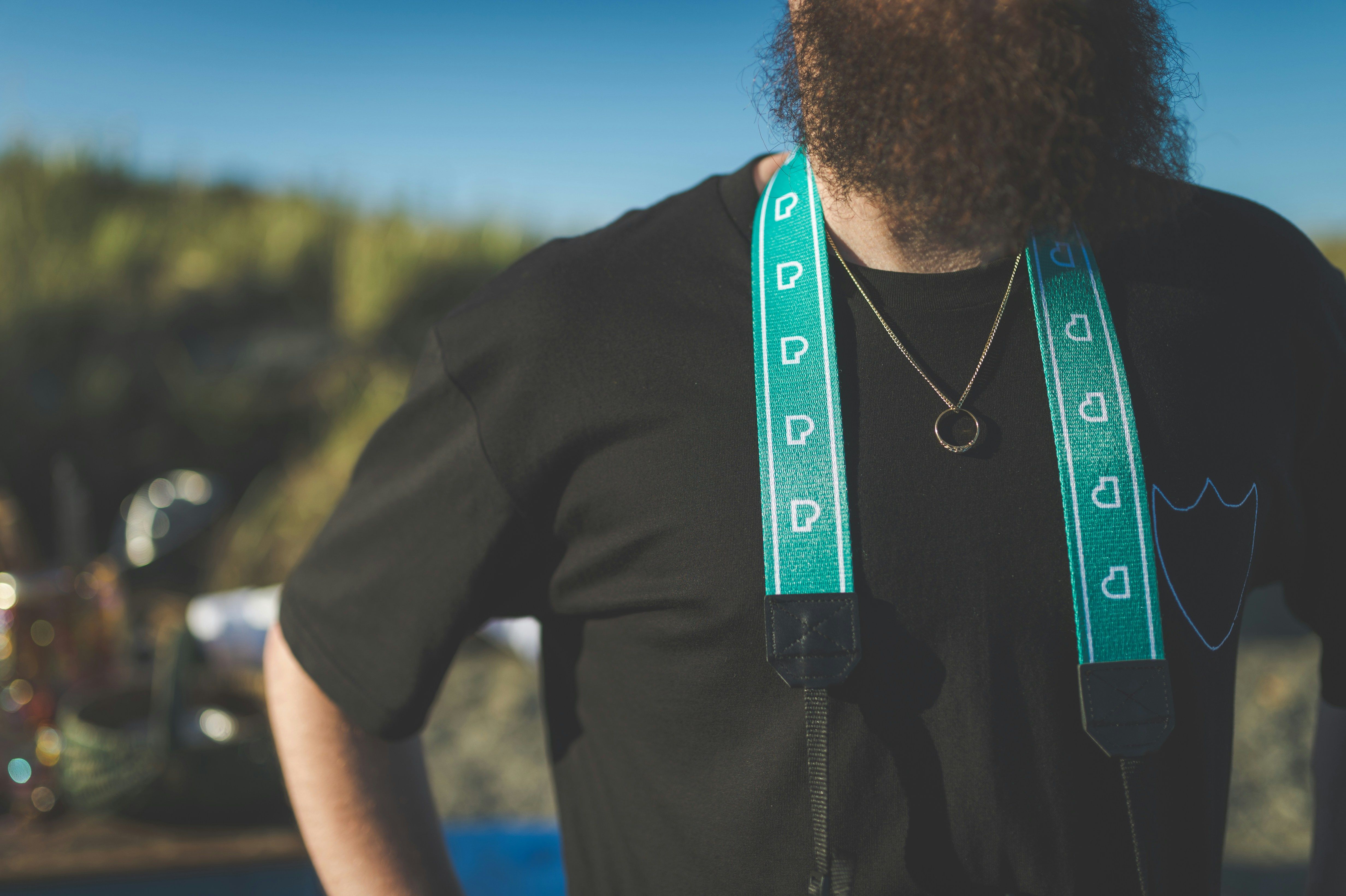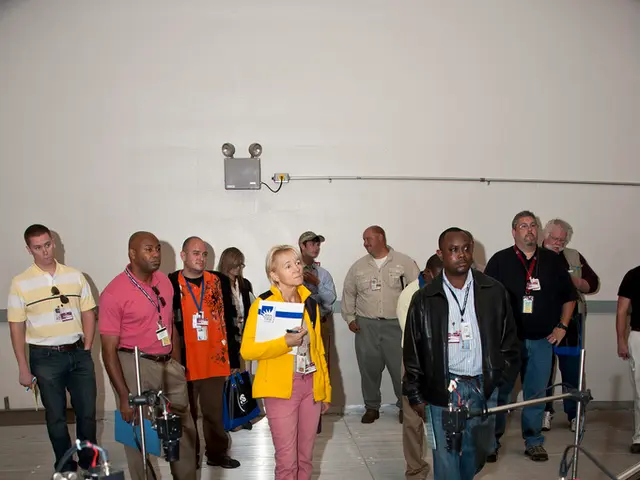The Dark Cloud Hovering Over World's Biometric ID Project
Bagging a Brief Ban in Indonesia
Indonesia Halts Sam Altman's Eye-Scanning Global Venture
The regulatory hammer has come crashing down on World's biometric ID project in Indonesia, with the authorities allegedly uncovering a slew of regulatory infractions. The suspension is a result of World's failure to secure the necessary license and a possible misuse of licenses, according to the Digital Space Supervision Director General, Alexander Sabar.
Led by Sam Altman, CEO of the ChatGPT creator OpenAI, World offers irregular payouts in its cryptocurrency token (WLD) in exchange for users' biometric data scanned through its Orb devices. The Indonesian subsidiary PT Terang Bulan Abadi, which operated World in the country, was not registered as an Electronic System Organizer (PSE), and thus lacked the Electronic System Organizer Registration Certificate (TDPSE) needed under Indonesian law. Moreover, World used a TDPSE belonging to another entity, PT Sandina Abadi Nusantara, which has landed both legal entities in hot water with the regulators.
Alexander Sabar, as the regulatory watchdog, views this as "a serious violation" that warrants the suspension. He finalized the suspension as a "preventive measure to prevent potential risks to the community."
The 'World' of Regulatory Troubles
This isn't a first ruffling of feathers for World, which has encountered regulatory headwinds in other countries as well. In December of the previous year, German authorities ordered World to implement a GDPR-compliant data deletion protocol, and a month later, Brazil's National Data Protection Authority (ANPD) imposed a ban on the company from operating in the country, alleging that the payouts could manipulate consumer behavior unfairly.
World was banned for nearly a year in Kenya, where politicians derided the company as a "gang of criminals." However, it resumed operations in June 2024.
Thrones Await Amidst Challenges
Even though World might have temporarily lost access to the massive Indonesian market, the company is also forging ahead, expanding its potential user base. This week, it rolled out its service in six major American cities: Atlanta, Austin, Los Angeles, Miami, Nashville, and San Francisco. Notably, Americans were previously barred from receiving WLD tokens as payment.
Recently, World has also struck deals with big players like Tinder owner Match Group and prediction market Kalshi, as well as introducing a Visa card and associated costs for applications using World ID services.
Daily Debrief Newsletter
Research, news, and analysis straight to your inbox. Sign up for the Daily Debrief Newsletter today.
Enrichment Data:
Overview
This incident signals a growing trend of regulatory scrutiny over the handling of biometric data, especially in regions where digital literacy and regulatory frameworks vary. The suspension comes amidst broad global concerns over the privacy and security of personal data.
Previous Regulatory Actions
- Indonesia's Suspension: Tools for Humanity (TFH), which operates World ID in Indonesia, has faced regulatory action due to a lack of necessary certificates and the misuse of licenses.
- Global Scrutiny: Similarly, other countries like Germany, Kenya, and Brazil have raised concerns about the security and privacy of users' biometric data, and World ID's biometric data practices in Kenya have also faced regulatory reproach [1][2][3].
Implications
- Privacy and Security Concerns: The suspension underscores the urgent need to address privacy and security concerns surrounding biometric data, given the risks involved in regions with varying levels of digital literacy and regulatory frameworks.
- Operational Impact: TFH has voluntarily paused services in Indonesia to address regulatory issues and engage constructively with authorities to seek necessary permits [3].
- Broader Regulatory Landscape: The incident reflects a broader trend of governments scrutinizing digital technologies, specifically those involving sensitive personal data, and emphasizes the need for robust regulatory frameworks to protect user privacy while fostering innovation in the tech sector [4][5].
- Digital Literacy and Awareness: The incident points to the importance of digital literacy and raising awareness about digital services and their implications [5].
Future Developments
- Resolution and Clarification: TFH is working towards resolving the regulatory issues by securing necessary permits and engaging constructively with Indonesian authorities.
- Global Expansion: Despite the challenges, World ID is keen on expanding its operations globally, as evidenced by its recent US debut [3].
- The suspension of World's biometric ID project in Indonesia stemmed from a lack of necessary licenses and potential misuse of licenses, raising concerns about the cryptocurrency token, WLD, used by the company for payouts.
- In the aftermath of this suspension, World may face additional regulatory challenges in other countries, such as Germany, Brazil, and Kenya, where authorities have raised concerns about the security and privacy of users' biometric data.
- As a response to these regulatory issues, World is proactively expanding its user base by introducing its service in six major American cities, while also striking deals with companies like Match Group and Kalshi, and introducing a Visa card for applications using World ID services.








